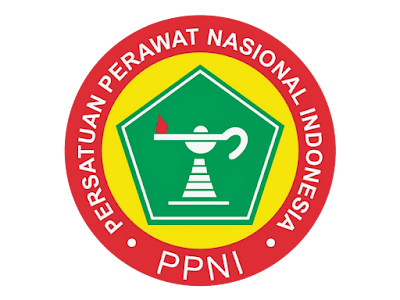FAKTOR-FAKTOR YANG BERHUBUNGAN DENGAN MOTIVASI MASYARAKAT DALAM MENGUNJUNGI POSBINDU PENYAKIT TIDAK MENULAR SAKINAH DI DESA TASIK JUANG KECAMATAN LUBUK BATU JAYA KABUPATEN INDRAGIRI HULU
DOI:
https://doi.org/10.35328/keperawatan.v12i1.2409Keywords:
Motivation, Visit Factors, Posbindu PTMAbstract
The increasing prevalence of non-communicable diseases (NCD) and the low motivation of the community to visit NCD posbindu to carry out early examinations, will certainly be a serious threat to health development in the community. NCD has become a major cause of death globally at this time and the incidence of NCD shows that it continues to increase every year. The objective of this study to determine the factors related to people's motivation to visit the Sakinah Non-Communicable Diseases Posbindu in Tasik Juang Village, Lubuk Batu Jaya District, Indragiri Hulu Regency. This type of research is descriptive observational. The number of samples is 180 respondents with simple random sampling technique. The statistical test used is the Chi Square Test. The results of the research on the knowledge factor obtained a p value of 0.048 (p <0.05), it was concluded that there was a relationship between knowledge and community motivation in visiting Posbindu Non-Communicable Diseases, the attitude factor obtained a p value of 0.000 (p <0.05), it was concluded that there was an attitude relationship on community motivation in visiting Non-Communicable Diseases Posbindu, then the education factor obtained a p value of 1.000 (p > 0.05), it was concluded that there was no relationship between education and community motivation in visiting Non-Communicable Diseases Posbindu, then the family support factor obtained a p value of 0.003 ( p <0.05). As a whole it can be concluded that there is a relationship between family support and community motivation in visiting Posbindu Non-Communicable Diseases. It is hoped that health workers can conduct counseling about the functions, benefits and objectives of using Posbindu PTM for the community.
Downloads
References
Azwar. (2013). Sikap Manusia Teori dan Pengukurannya, Edisi ke 5. Jakarta; Pustaka Pelajar.
Badan Penelitian dan Pengembangan Kesehatan. (2018). HASIL UTAMA RISKESDAS 2018. Kementerian Kesehatan Republik Indonesia.
Dinas Kesehatan Provinsi Riau. (2021). Profil Kesehatan Provinsi Riau 2020.
Intarti, W. D., & Khoriah, S. N. (2018). Faktor-Faktor yang Mempengaruhi Pemanfaatan Posyandu Lansia. JHeS (Journal of Health Studies), 2(1), 110–122. https://doi.org/10.31101/jhes.439 DOI: https://doi.org/10.31101/jhes.439
Kemenkes RI. (2012). Petunjuk Teknis Pos Pembinaan Terpadu Penyakit Tidak Menular ( PTM). Ditjen Pengendalian Penyakit Dan Penyehatan Lingkungan, Kementerian Kesehatan RI, 1–39.
Kemenkes RI. (2019). Buku Pedoman MANAJEMEN PENYAKIT TIDAK MENULAR. Direktorat Jenderal Pencegahan Dan Pengendalian Penyakit Direktorat Pencegahan Dan Pengendalian Penyakit Tidak Menular, 2.
Lestari, I., Hartati, E., & Galuh, M. (2017). Faktor-Faktor Yang Mempengaruhi Minat Kunjungan Remaja Ke Posbindu Di Wilayah Tlogosari Kulon Rw 16 Kota Semarang. Karya Ilmiah, 1–7.
Meinarno, E. A., & Sarwono, S. W. (2018). Psikologi Sosial (Edisi 2). Salemba Humanika.
Notoatmodjo, S. (2012). Promosi Kesehatan dan Perilaku Kesehatan. Rineka Cipta.
Purdiyani, F. (2016). Pemanfaatan Pos Pembinaan Terpadu Penyakit Tidak Menular (Posbindu Ptm) Oleh Wanita Lansia Dalam Rangka Mencegah Penyakit Tidak Menular Di Wilayah Kerja Puskesmas Cilongok 1. JURNAL KESEHATAN MASYARAKAT (e-Journal), 4(1), 470–480.
Putra, D. (2015). Faktor Yang Berhubungan Dengan Pemanfaatan Posyandu Lansia Di Wilayah Kerja Puskesmas Sikapak Kota Pariaman. Universitas Andalas.
Sandra, P. N., & Kusumaningrum, I. D. (2018). Pengetahuan, Sikap dan Dukungan Keluarga tentang Pemanfaatan Posbindu Penyakit Tidak Menular di Kretek Bantul. Ilmu Keperawatan Dan Kesehatan Masyarakat, 13(2), 57–64. DOI: https://doi.org/10.32504/sm.v13i2.98
Suardiman, S. P. (2012). Psikologi usia lanjut. Gajah Mada University Press.
Tanjung, W. W., Harahap, Y. W., & Panggabean, M. S. (2018). Faktor-Faktor Yang Mempengaruhi Motivasi Pemanfaatan Program Pos Pembinaan Terpadu Penyakit Tidak Menular Di Wilayah Kerja Puskesmas Batang Toru KabupatenTapanuli Selatan Tahun 2017. Jurnal Kesehatan Ilmiah Indonesia, 3(2), 92–108.
Triyanto, T. (2014). Pengantar Pendidikan. Bumi Aksara.
Uno, H. B. (2016). Teori Motivasi & Pengukurannya: Analisis di Bidang Pendidikan (Ed. 1 Cet.). Bumi Aksara.
Wagiran. (2015). Buku Metodologi Penelitian Pendidikan: Teori dan Implementasi. Deepublish.
Wawan, A., & Dewi, M. (2018). Teori & Pengukuran Pengetahuan, Sikap, dan Perilaku Manusia. Nuha Medika.
WHO. (2014). GLOBAL STATUS REPORT on noncommunicable diseases 2014 Attaining the nine global noncommunicable diseases targets; a shared responsibility. World Health Organization, 176. https://doi.org/ISBN 9789241564854
World Health Organization. (2017). Noncommunicable Diseases Progress Monitor 2017. In World Health Organization.
Downloads
Published
Issue
Section
License
Copyright (c) 2023 Al-Asalmiya Nursing: Jurnal Ilmu Keperawatan (Journal of Nursing Sciences)

This work is licensed under a Creative Commons Attribution 4.0 International License.














